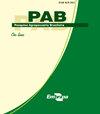亚马逊东部巴西莓棕榈基底温度和热时间要求
IF 0.7
4区 农林科学
Q3 AGRICULTURE, MULTIDISCIPLINARY
引用次数: 0
摘要
摘要本研究的目的是确定巴西亚马逊东部帕尔本文章由计算机程序翻译,如有差异,请以英文原文为准。
Acai palm base temperatures and thermal time requirements in eastern Amazon
Abstract The objective of this work was to deter mine the base temperatures, thermal time requirements, and length of the main reproductive growth stages of acai palm (Euterpe oleracea) in the northeast of the state of Pará, in eastern Amazon, Brazil. The experiment was carried out from 2017 to 2019 in a 10 ha acai plantation, using the time-series analysis. Plant phenology was monitored weekly, and local weather conditions were monitored daily. The lower and upper base temperatures were of 12.92 and 32.46°C, respectively, for pre-flowering; 13.50 and 32.23°C for flowering; 12.14 and 32.55°C for green fruit stage; 11.64 and 32.78°C for fruit color-changing stage; and 11.23 and 32.94°C for maturation. The thermal time requirement and the average cycle length for the ideal harvest time of acai palm were 3,893.15 degree-days and 283 days, respectively. The thermal time requirement and the duration of the reproductive growth stage for acai palm are influenced by the period of the year and the variability of air temperature, which, when high, reduces the cycle of the crop, and when mild, increases it.
求助全文
通过发布文献求助,成功后即可免费获取论文全文。
去求助
来源期刊

Pesquisa Agropecuaria Brasileira
农林科学-农业综合
CiteScore
1.20
自引率
0.00%
发文量
45
审稿时长
9-18 weeks
期刊介绍:
Pesquisa Agropecuária Brasileira – PAB – is issued monthly by Empresa Brasileira de Pesquisa Agropecuária – EMBRAPA, affiliated to Ministry of Agriculture, Livestock and Food Supply. PAB publishes original scientific-technological articles on Plant Physiology, Plant Pathology, Crop Science, Genetics, Soil Science, Food Technology and Animal Science.
Its abbreviated title is Pesq. agropec. bras., and it should be used in bibliographies, footnotes, references and bibliographic strips.
 求助内容:
求助内容: 应助结果提醒方式:
应助结果提醒方式:


